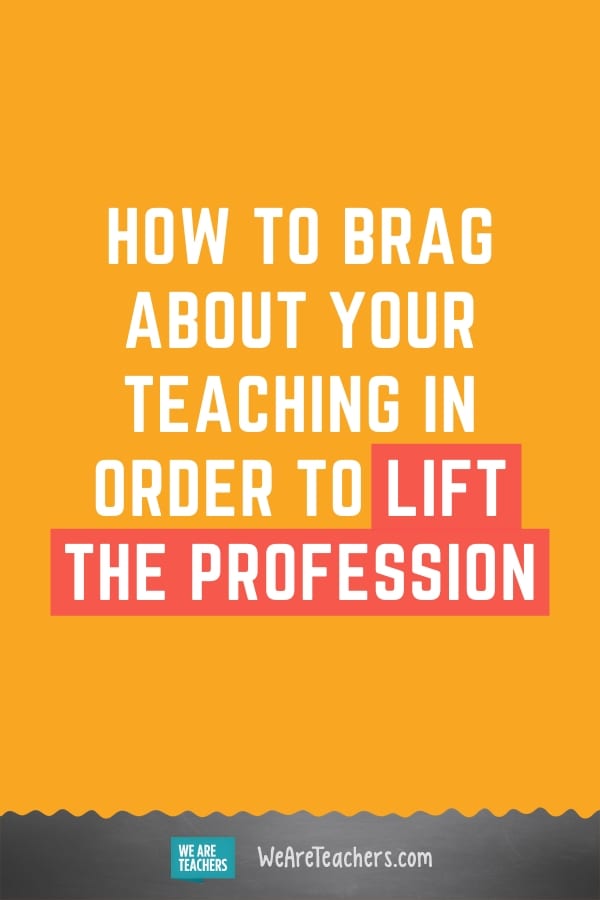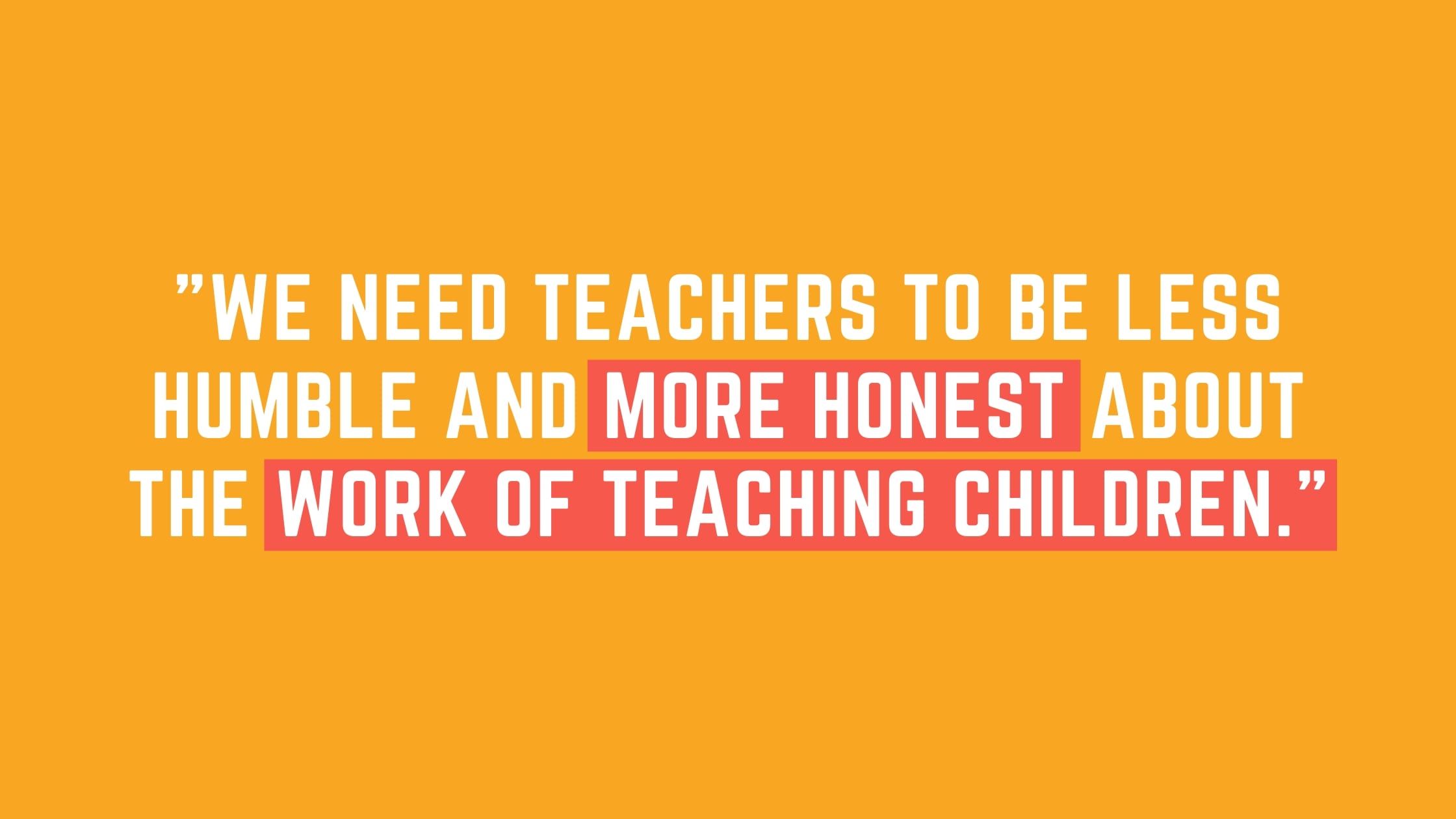Good teachers lift their students up and give them the credit, right? Yes, and no. Students who bring hard work to the table do deserve credit for doing well, but teachers who plan lessons regularly, use (and research) best strategies for learning, and check in with students consistently are the foundation for education.
The teaching profession is belittled on a regular basis in the media, on social channels, and by community members. It may feel like there’s nothing we can do to stop the public from thinking they know all about teaching because they were in school once, but there is a way! Call it better marketing or promoting yourself, but teachers need to start talking about what they specifically do to make learning happen. Here’s how to brag about teaching without sounding like a jerk:
Be genuine about your teaching
Telling people about your classroom accomplishments should be more eye-opening and less entertaining. Think about your motivation for talking about what you do as a teacher. Is it just to get people laughing about the funny things kids or adults do? Or are you sharing something about teaching people might not know?
Share your teaching excitement
Too often, teachers are negative about education. Everyone loves to listen to someone who is passionate about what they do. What’s your favorite part of teaching? Share that. Think of something specific that was successful in your classroom. As you talk about it, you’re naturally going to want to share how awesome you think it is. As you tell your story, your teaching accomplishments will reveal themselves almost without you realizing it. This allows others to learn what you’re passionate about as well as what you’ve accomplished in a particular area, without the sense that you’re bragging.
Ask questions like a teacher
People who are great at touting their teaching often listen more than they actually talk. Knowledgeable people ask clever questions that help others dig deeper into what they really believe, think, or know. Good teachers have an innate ability to do this kind of digging because it’s what we already do in the classroom. Ask questions of the people you’re talking to, and add your perspective as you go along.
Be brief about your teaching success
When the time comes to talk about something specific you’ve done, keep it short and showcase your ingenuity. For example, you might say “This year I had a student who struggled to remember any basic facts. I designed a placemat he could use for reference without feeling embarrassed throughout our day. He started remembering the facts because it turns out being ashamed was stopping his brain from learning.”
Be strategic about the education information you share
If you’re out with people who are bashing education, it’s natural to want to stop them or walk away from the conversation. But instead, ask yourself, “What’s the one thing I want these people to know about being a successful teacher?” Frame your conversation around that specific achievement.
Help people understand you as a teacher
Often socializing is more about your personality than your abilities. Nobody wants to hang out with someone who is constantly talking about the great things being done in their classroom. Instead, focus on connecting with how your life intersects with education all the time. Many people get to leave their jobs when they head out for happy hour, but we need to think about who is watching us drink wine and if they’ll tell all their friends they saw you. We don’t get to shed our teacher-selves, ever, and it’s valuable for non-teachers to get that.
Talk about teacher impact
Maybe you started a program that allows family members to bring their tech devices to school for a professional to download and set up the apps students need for practicing at home. Rather than talking about how great it was that you thought of your idea, focus on the impact your work has had. “It’s so amazing to see how much better kids do when their families feel supported.”
Don’t humblebrag about teaching
Humble bragging is often too self-deprecating. Education and teachers get enough put-downs. Instead, strike a realistic tone that shows gratitude for your success. It’s okay to be proud of your successes, but it’s good to make it clear that you don’t take them for granted. Why? Because professionals know the work you put into teaching brings you to successes, not just blind luck or good students.
Knowing how to brag about being a great teacher is about finding the balance between lifting the profession and showcasing your contributions. We need teachers to be less humble and more honest about the work of teaching children.
Do you tell people about your successes in the classroom? Share about it on the We Are Teachers HELPLINE.
Plus, I Love Teaching, But I Hate Whatever This Is!


